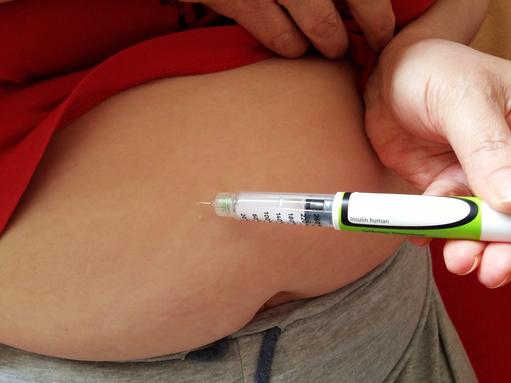Tag
Directory:
Tags:

Diabesity and the food-brain relationship
Scientists from Imperial College London have enhanced our understanding of the food-brain relationship by discovering a brain mechanism that drives our appetite for foods rich in glucose, which could lead to treatments for diabesity.
Obesity, insulin resistance, metabolic syndrome and type-2 diabetes have reached epidemic proportions, yet few people understand how closely they're related, and what causes them. Diabesity is a metabolic dysfunction that ranges from mild blood glucose imbalance to fully-fledged type-2 diabetes.
Intimate food-brain relationship
Diabesity accounts for between 65 and 85% of new cases of type-2 diabetes, and affects more than one billion people worldwide; including 60 million Europeans, and 100 million Americans.
For most people, neither dieting nor current pharmacological interventions are effective in achieving long-term weight reduction. Therefore, to prevent and treat diabesity we must develop approaches to modulate the ways in which the brain controls body weight.
"This is the first time anyone has discovered a system in the brain that responds to a specific nutrient, rather than energy intake in general, and it raises the potential that diabesity could be reduced and prevented by medication acting on the part of the brain that craves glucose," says Dr James Gardiner who led the study.
Our brain rules our belly
Researchers identified a mechanism, which senses how much glucose is reaching our brain, and if our brain detects a shortfall, it makes prompts to seek more glucose. This mechanism is more active in people who are obese-prone, suggesting that the brain can promote obesity.
The Imperial College study is published in The Journal of Clinical Investigation . According to its lead author, Dr Syed Sufyan Hussain, 'Glucose is a component of carbohydrates, and the main energy source used by brain cells. This study demonstrates that the brain plays a significant role in driving our preference for sweet and starchy foods. Prior to industrialisation, such glucose rich foods were not easily available, but today they're everywhere.'
Addicted to food?
Dr Mohammed Hankir, a neuroscientist at the University of Leipzig, Germany, says, 'It's becoming increasingly clear that when we consume certain types of food, particularly those high in fat and sugar, the same brain circuits are engaged as when taking drugs of abuse. We may therefore have little choice about overeating and becoming obese.'
If the diabesity epidemic is the result of our brains being hard-wired to consume energy rich food, can we cure diabesity with pharmacological manipulation of these brain pathways?
Bowels control the brain
Professor Sir Stephen Bloom, Head of Division for Diabetes, Endocrinology and Metabolism, Imperial College London, thinks we can, and says, 'Gut hormones are chemical messengers secreted by the digestive system that affect our brain and control appetite. Hijacking this natural messenger system is an attractive and likely option for treating diabesity'. The GLP-1 hormone is widely used for the treatment of diabetes. It also leads to weight loss. There are other such gut hormones that need further evaluation because they could provide attractive solutions for obesity.
Takeaways
The food-gut-brain relationship promises a much-needed solution for the diabesity epidemic. Whilst the search continues, we must act now to prevent this. Most healthcare systems are organized to treat the acute symptoms of diabesity, and manage the condition once it's been diagnosed. Healthcare systems are less adept at prevention, and early detection. This requires effective education, which is currently not available.









